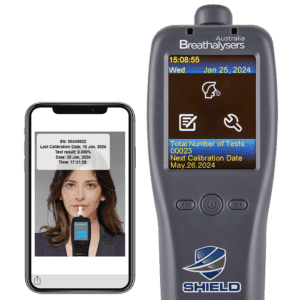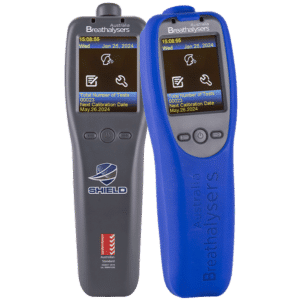Drug Test Auckland: How It Works, What to Expect & How to Prepare
10 July, 2023

Drug tests in Auckland are regularly done in many industries as organisations aim to minimise the safety risks of illicit drugs and alcohol. These tests use biological specimens to trace specific substances. Individuals who need to undergo these tests must be aware of the different types of tests and what substances are being tested for. It is also vital to make the necessary preparations, such as not eating certain foods and proper rest before the test.
Illegal drug use is a challenge across all industries, including law enforcement. It is one of the leading causes of road and workplace accidents. Therefore, strict laws and policies are implemented to manage these risks. Being well-informed about the process of drug testing can help minimise the chances of possible false positive results. This article will provide information on how testing works, what to expect during the test, and how to prepare for it.
How a Drug Test in Auckland Works
A drug test in Auckland is standard practice in roadside screening and workplace testing. The procedure includes collecting and analysing biological samples to detect illicit substance use. Prescription and illegal drugs are known to have detrimental effects on the body, including severe impairments and health complications. The type of test depends on the situation or purpose of the test.
In roadside screening, police officers conduct saliva and breath tests for drug and alcohol detection, respectively. Individuals with positive test results can be subject to legal charges, including fines, license suspension, prison terms, and an alcohol interlock program. Moreover, roadside inspections take place at sobriety checkpoints or randomly. Thus, drivers have to ensure they are always sober and not under the influence of any substance while operating a motor vehicle.
In workplace testing, employers may conduct various procedures depending on company policy and their testing needs. This helps them detect substances that may affect job performance or safety. The results of the test will determine if an employee needs disciplinary measures or support for rehabilitation.
Types of Drug and Alcohol Tests
- Urine: The standard test method in most workplaces and healthcare settings. It detects evidence of recent drug use for days to weeks, depending on the specific drug.
- Saliva: This test traces illicit substances in oral fluids. Drugs are detectable in saliva within 12 to 48 hours after last use.
- Blood: The most accurate test method. However, it is expensive and uses an invasive collection method.
- Breath: Detects alcohol consumption and measures the Blood Alcohol Content (BAC) using a portable breathalyser.
- Hair: Provides the longest detection window of up to 90 days, suitable for identifying the substance use history.

What to Expect During a Drug Test in Auckland
There are a few things people can expect when undergoing a drug test in Auckland. The screening looks for commonly abused substances, including marijuana, cocaine, amphetamines, benzodiazepines, and opiates. The collection process is quick, and the results are available within a few minutes to a few days, depending on the type of test.
The common method of drug testing is urine analysis. In this test, the donor provides a urine sample in a sterile cup or container. Samples may be collected in the presence of a monitor or unsupervised, depending on the specific circumstances. Meanwhile, police officers use the saliva test during roadside drug screening for initial testing. It is less invasive and can be performed in plain sight, minimising the possibility of adulteration.
Professionals may analyse urine or saliva samples on-site or send them to a laboratory for analysis. On-site screening can detect drugs after a few minutes using testing kits with immunoassay technology. On the other hand, blood tests require a laboratory procedure. It gives precise assessment, making it suitable for confirmatory testing.
Considerations When Conducting a Drug Test
There are several things to consider when conducting a drug test. Firstly, disclose any prescription medications. Interactions with certain medicines may cause false positive results. Secondly, be aware of the detection windows for each method of testing. The timing of the test is crucial, as drugs can remain in the system for varying periods.
Lastly, the purpose of the test determines what type of test is most suitable. For pre-employment, employers may employ urine or hair tests because of their long detection periods. For random monitoring or reasonable suspicion, a breath test or oral fluid is ideal for detecting current impairments.

Preparing for a Drug Test in Auckland
There are simple steps to take when preparing for a drug test. Healthcare providers may advise avoiding certain foods and medications for 24 hours before the test. This includes alcohol, caffeine, and over-the-counter (OTC) medicines. It is also advisable to avoid strenuous exercises for 8 to 12 hours. Next, donors must follow the instructions carefully when collecting a sample.
Additionally, some tests may require fasting before the procedure. In a breath test, for example, avoid eating, drinking, or smoking at least 20 minutes before the test. This helps get a precise breath sample and minimises the possibility of false positives. Test administrators may also observe individuals before the test.
An alcohol and drug test in Auckland workplaces may be conducted without prior notice. This aims to detect employees with current impairments. Thus, individuals who may be under the influence of prohibited substances cannot avoid the test by abstaining for a short period. Lastly, avoid exposure to alcohol-based products, such as mouthwash, hand sanitisers, and cleaning agents, that may potentially cause false-positive results.
Where to Avail Testing Services
There are various options for drug and alcohol testing. Individuals may go to local testing centres or clinics. A medical professional or employer may also recommend an accredited laboratory or testing partner. When selecting a testing facility, consider the test procedures and the turnaround of the results.
Furthermore, companies may avail of mobile testing services from accredited drug testing providers. It is a cost-effective and efficient way to monitor employees for alcohol and drug use. These agencies conduct drug testing based on specific policies and requirements. Thus, it helps organisations maintain a safe and healthy working environment.
Conclusion
Drug tests in Auckland are done in various settings to help minimise the health and safety hazards of illegal substances. It is a valuable tool for detecting impairments that may lead to accidents and injuries. Individuals may expect to undergo several test methods, such as urine, saliva, blood and breath testing. Moreover, there are simple steps to prepare for the test. For instance, avoid certain foods, medications, and exposure to external factors that may interfere with the results.
Overall, it is essential to understand how each test method works and the factors that may affect the test. Individuals must follow the instructions of the collector carefully to ensure accurate results. In addition, tampering with results may result in serious consequences. Overall, drug testing on the roadside and in workplaces aims to ensure safety and protect the well-being of the public. Individuals with positive test results may face legal penalties.






























